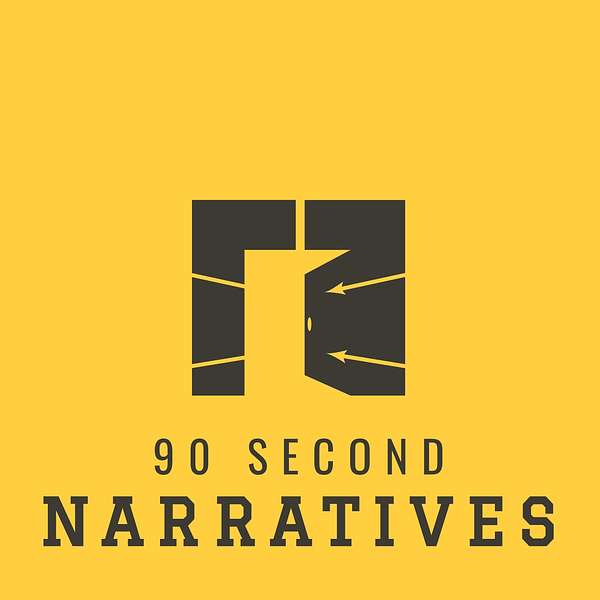
90 Second Narratives
90 Second Narratives
The Columbian Exchange
Use Left/Right to seek, Home/End to jump to start or end. Hold shift to jump forward or backward.
“One of the most famous, and consequential, journeys in the history of humanity was Christopher Columbus’ fateful journey across the Atlantic Ocean in 1492…”
So begins today’s story from Dr. Sky Michael Johnston.
For further reading:
The Columbian Exchange: Biological and Cultural Consequences of 1492 by Alfred W. Crosby (1972)
Episode transcript:
https://skymichaeljohnston.com/90secnarratives/
90 Second Narratives
Season 8: “Journeys”
Episode 6: “The Columbian Exchange”
Sky Michael Johnston:
Welcome back to 90 Second Narratives, the podcast that brings you “little stories with BIG historical significance.” I’m Sky Michael Johnston, the host and creator of the podcast and today I’m sharing my own story on this season’s theme of Journeys. Here is, “The Columbian Exchange.”
* * *
One of the most famous, and consequential, journeys in the history of humanity was Christopher Columbus’ fateful journey across the Atlantic Ocean in 1492. Think for a second about all the things named “Columbia” or “Colombia,” a word derived from the name Columbus. Companies, cities, universities, and even a nation come to mind.
Commemorations of Columbus’ journey, as extravagant as they have historically been, do not exaggerate the historical significance of the journey. It was the catalyst for sustained contact between the Eastern and Western Hemispheres, a defining feature of our world ever since.
It wasn’t until 1972, however, that the historian, Alfred W. Crosby, attached Columbus’ name to a new term that shapes how many conceptualize the journey and its aftermath today. The term is the “Columbian Exchange.” It denotes that travel between the Eastern and Western Hemispheres involved the exchange of much more than people, ideas, or cultures. Animals, plants, metals, and diseases also travelled. Some things crossed the Atlantic to become firmly entrenched in the ecologies and human societies of their new homes, like tomatoes in Italy or the free-roaming mustangs of North America.
More importantly, tangled interactions across the Atlantic, and then around the globe, have given cover to the naturalization or veiling of processes of conquest. In fact, the name Columbus itself has been used to link Europeans to the lands they sought to possess. The idea of the Columbian Exchange, however, reminds us that there was a process by which the Eastern and Western Hemispheres were melded into what they are today and that it didn’t happen inherently on its own.
* * *
If you are interested in reading Alfred W. Crosby’s book for yourself, its full title is, The Columbian Exchange: Biological and Cultural Consequences of 1492.
Thank you for listening to 90 Second Narratives, please join me again next week.